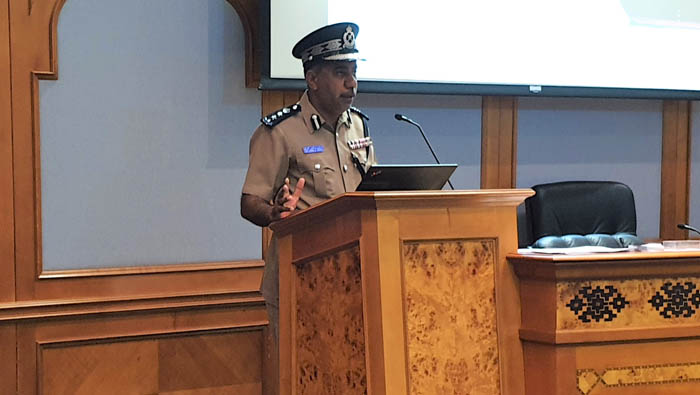
Muscat: KPMG Lower Gulf’s Muscat office held a joint seminar with the Directorate General of Customs, Oman (DGC Oman) on the Authorised Economic Operator Programme (AEO Programme).
The seminar, which was attended by over 40 participants, aimed to spread awareness and encourage participation in the AEO Programme in Oman.
Colonel Said Khamis Al Ghaithi, Deputy DGC Oman, and Ashok Hariharan, Partner and Head of Tax, KPMG Lower Gulf in Oman, opened the seminar, touching upon the potential of the Sultanate to become a global logistics hub considering its strategic location and the continuous efforts by DGC Oman to ease customs compliance for businesses in the Sultanate.
First Lieutenant Saleh Humaid Hamed Al Shereiqi, Financial Officer and Supervisor of the AEO DCG, explained the specifics of the AEO programme – what it is, which businesses qualify for the programme, what are the benefits extended to businesses registered as an AEO, what are the eligibility criteria and the future plans of the AEO Programme.
Aabha Lekhak, Indirect Tax Director with KPMG Lower Gulf in Oman, said: “Our goal was to help businesses in Oman acquaint with the AEO Programme, as it is an excellent initiative that allows businesses with import/export intensive operations a plethora of benefits. Faster cargo clearance, decreased customs inspections, priority inspections and increased preclearance are some of the evident administrative benefits."
"International certification and marketing benefits, mutual recognition and the permission to use the AEO logo are some of the intangible benefits. This list continues to evolve with monetary benefits like duty deferral and duty payment also in the offering,” Lekhak added.
The AEO is an international programme adopted by over 80 countries across the globe and signifies that the status holder’s role in the international supply chain is secure and the customs controls and procedures are efficient and meet WCO standards.
Though not mandatory, it allows accredited organisations quicker access to simplified customs procedures. In some cases, this may mean the right to fast-track shipments through some of customs safety and security procedures and in other cases the right to defer payment of duty from the customs clearance to a later point in time.